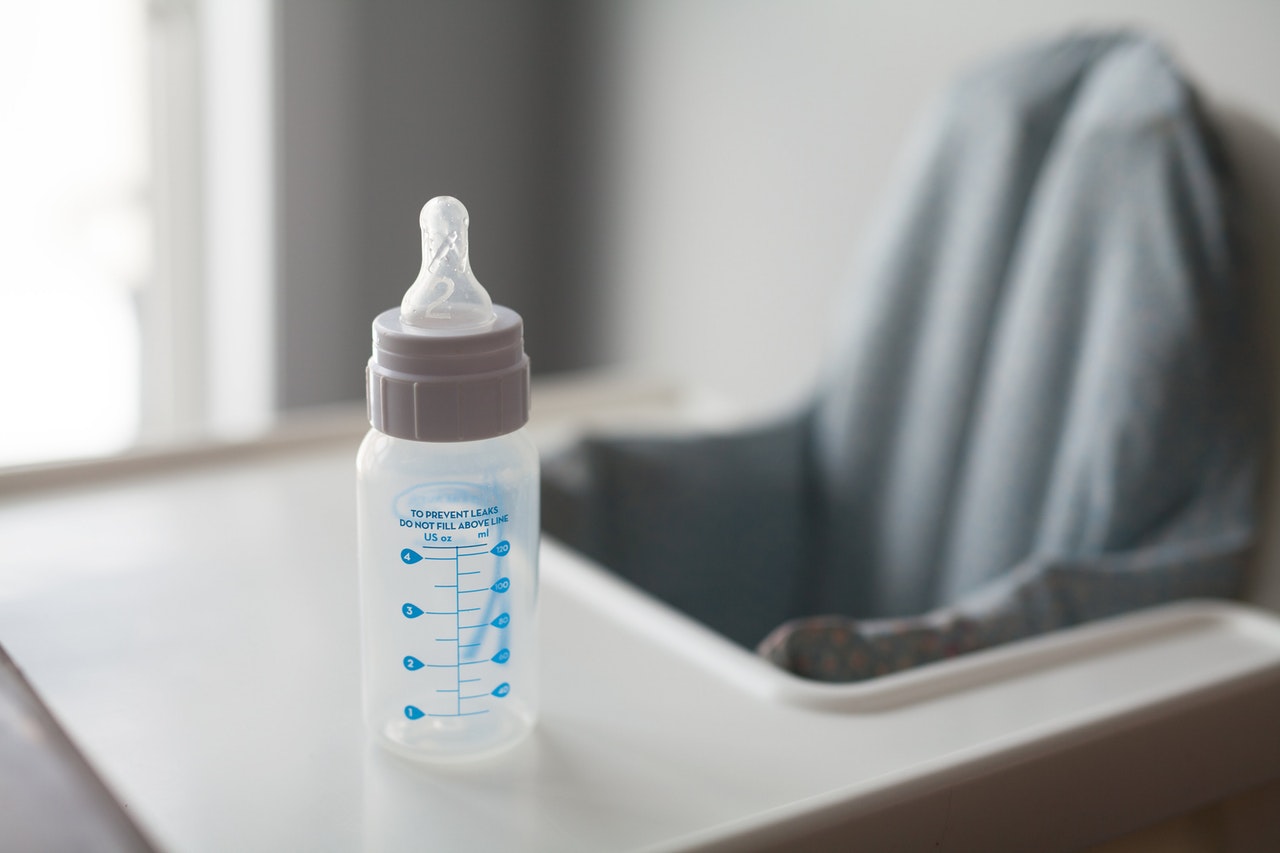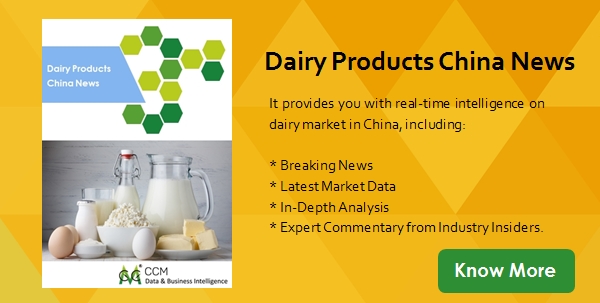According
to market intelligence firm CCM, the infant formula sales in China have been
surging in 2017, measured by the success of four major players in the industry.
While China’s newly introduced two-child policy is not causing a higher baby
rate as expected, dairy companies are fighting for the shrinking market share.

In
the past year, China's dairy consumption rebounded and milk price rose slightly
compared with 2016. It is widely believed that China's milk price will rise in
2018, as the global milk crisis ended in 2017.
In
2016, the Chinese government had relaxed its stance on the one-child policy,
allowing two children under special circumstances. However, the changed politic
has not brought the ease of Chinese new-born rate, as was hoped for. In fact,
according to the National Bureau of Statistics in China, there were 17.23
million of newborn babies in 2017, down by 630,000 compared to 2016. This trend
is an alarming news for infant formula producers, who hoped for a higher demand
driven by more babies.
The
birth decline in China was mainly due to the number of newborn first children
declined from 9.73 million in 2016 to 7.24 million in 2017. By contrast, the
number of newborn second children reached 8.83 million in 2017, up 1.62
million, and accounting for 51.2% of China's newly born population last year.
After
the new so-called Second-Child Policy took effect in 2016, government
officials, industry experts and trade sources predicted that the number of
newborn babies would peak in 2017 at above 20 million. But this prediction did
not come true, as the figure even declined. Insiders explained that the rise in
births in 2016 was probably an extraordinary event as those couples who wanted
a second child did so in the first year already.
As
a result of this trend, the domestic infant formula market will likely shrink
in the future and competition among infant formula producers will certainly
heat up.
Company performances
Ausnutria
Dairy revealed that in 2017, its revenue reached over USD630 million, an
uptrend by 46% compared to 2016. Furthermore, the sales of its infant formula
reached about USD200 million, up by 62.5%. Hence, the business of infant
formula was better than the average financial performance. What’s more, the
company has targeted sales of USD950 million for 2018, up by 50%.
It
is worth noticing, that Ausnatria Dairy aims to become a leading
world provider of infant formula by 2025, as stated in their long-term
strategic goal.
Junlebao
Dairy achieved an evenly outstanding performance in 2017, announcing its sales
surpassed USD1.59 billion. This makes it the 4th locally-based dairy company
with sales exceeding RMB10 billion, following Yili, Mengniu and Bright Dairy.
Liu
Senmiao, Junlebao's Vice President and General Manager of its Infant Formula
Business Division, said the company's high sales mainly came from brisk
business for infant formula and its fresh yoghurt. In 2017, its sales of infant
formula were almost USD400 million, doubling the figure in 2016. Junlebao
targets infant formula sales of USD793.08 million in 2018

Yili's
Infant Formula Business Division revealed at its 2018 Client Meeting that, as
of October 2017, its sales of infant formula were up 24.1% YoY, taking the
lion's share of the domestic market, and its sales of adult milk powder went up
12.6% YoY.
Feihe
Dairy announced that its total sales in 2017 were up more than 60% and sales of
premium products went up over 200%. In 2018, it is targeting total sales of
more than USD1.59 billion.
Dairy Companies
Deepening Cooperation with E-commerce Platforms
On
1 February, JD.com announced a new Deep Strategic Cooperation Agreement with
Mengniu and set a goal that Mengniu' sales at JD Supermarket should total USD1.59
billion in 2018–2020. According to the agreement, Mengniu will
launch more customised products on JD.com, while JD.com will provide Mengniu
with more open data, strong marketing support and opportunities for new product
releases.
Seeing
the booming E-commerce business in China, all dairy companies, domestic and
foreign, are keen to cooperate with the country's E-commerce platforms. Their
cooperation has extended from product sales to logistics, data sharing and
brand promotion.
With
the development of the Internet and logistics, online sales of dairy products
are increasing yearly. In 2015, they totalled USD9.07 billion, with monthly
sales exceeding USD745.50 million on average. On 11 November 2017 alone,
the total online sales of liquid milk reached USD161.79 million and that of
infant formula were USD697.28 million. At present, online sale of dairy
products mainly comprise infant formula, followed by imported milk and premium
liquid milk.
JD.com
and Tmall.com combine to account for 80%–85% of the online dairy market,
followed by yhd.com. Tmall.com takes the biggest share of the online liquid
milk market, while JD.com dominates the online infant formula market. In 2016
JD.com's sales accounted for 45.9% of the total online sales of infant formula,
followed by Tmall.com at 36.7%. In 2017, JD.com took 54.5% of the online infant
formula market, whilst Tmall.com took 70%+ of the online adult milk powder
market.
About the article
The
information for this article comes from CCM, China’s leading market
intelligence provider for the fields of agriculture, chemicals, food and feed.
Get
more information on China’s dairy market in CCM’s monthly published Dairy
Newsletter.
Take
part in the discussion by joining our LinkedIn and Facebook group.
Follow
us on Twitter: @CCM_Kcomber